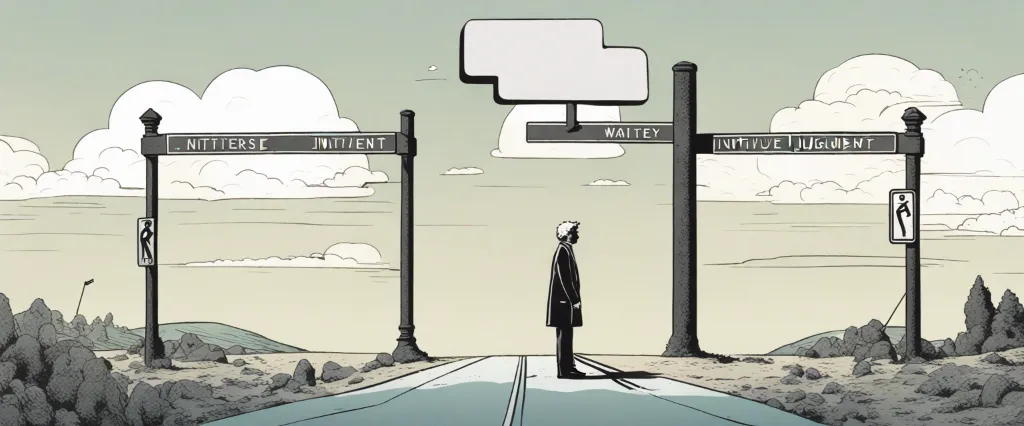
In the vast realm of self-improvement literature, Miguel Ruiz’s “The Fifth Agreement” and Dr. BJ Fogg’s “Tiny Habits” stand as two prominent beacons illuminating the path to personal transformation. With their unique approaches to self-discovery and growth, these books share a common goal: unlocking the untapped potential within each one of us. As we delve into a comparative study of these two remarkable works, we are compelled to explore their profound insights and practical wisdom, seeking to understand how they empower individuals to navigate the complexities of life and forge a path towards authentic contentment. Ruiz’s profound ancient wisdom harmonizes with Fogg’s scientific approach, allowing us to examine the fundamental principles of each book side by side. Through this exploration, we hope to uncover the underlying connections, discern their distinctive contributions, and ultimately gain a clearer understanding of the transformative power these books possess.
Brief Summary of Two Books
The fifth agreement by Miguel Ruiz
The Fifth Agreement” is a self-help book written by Miguel Ruiz, the renowned Mexican author and spiritual teacher. It serves as a continuation and expansion of his previous work, “The Four Agreements.
Ruiz emphasizes that the key to personal freedom and transformation lies in embracing a fifth agreement: “Be skeptical, but learn to listen.” This additional agreement complements the four original agreements: “Be impeccable with your word, don’t take anything personally, don’t make assumptions, and always do your best.”
The book explores how the fifth agreement can enhance interpersonal relationships, communication, and personal growth. Ruiz encourages readers to approach life with a sense of curiosity and open-mindedness. By being skeptical, individuals can question their beliefs, assumptions, and narratives that may limit their potential.
He argues that in order to truly listen, one must be fully present and engaged in the moment. Listening becomes an active process of understanding others without judgment or preconceived notions. Through attentive listening, individuals can foster deeper connections, empathy, and compassion.
Additionally, the book delves into the power of attention and focuses on overcoming the cultural conditioning that shapes our perception of reality. Ruiz insists on the importance of self-awareness, asserting that individuals have the power to create their own reality and break free from societal constraints.
Overall, “The Fifth Agreement” encourages readers to approach life with skepticism, listen attentively, and be open to transformation. It teaches individuals to be conscious of their thoughts and beliefs, enabling them to reshape their personal narratives and find true freedom and happiness.
Tiny Habits by Dr BJ Fogg
Tiny Habits” by Dr BJ Fogg is a self-help book that explores the concept of making small changes to achieve big results in life. Fogg, a renowned behavior scientist and founder of the Behavior Design Lab at Stanford University, introduces the idea of “tiny habits” as a powerful approach to behavior change.
The book starts by debunking common myths about willpower and motivation, emphasizing that lasting change does not require massive effort but can instead be achieved through a series of small, incremental steps. Fogg presents his behavior model, “the Fogg Behavior Model,” which states that three elements – motivation, ability, and prompts – must converge at the same moment to trigger behavior.
Fogg introduces the art of designing tiny habits by breaking them down into their simplest forms, creating a clear and achievable action that takes less than thirty seconds to complete. He emphasizes the importance of celebrating small victories as a way to reinforce positive behaviors and build momentum.
Throughout the book, Fogg provides practical techniques and tips for integrating tiny habits into daily life. He covers various areas where these habits can be applied, such as health, productivity, relationships, and personal growth. Fogg also addresses the challenges and setbacks that may arise during behavior change and offers strategies for overcoming them.
Drawing on real-life examples and personal anecdotes, Fogg illustrates how tiny habits have transformed people’s lives in significant ways. He emphasizes that anyone can adopt this approach, regardless of their circumstances or goals.
In summary, “Tiny Habits” is a guide to creating lasting change through small, manageable steps. Fogg’s insights, scientific research, and practical advice provide readers with a framework for developing habits that lead to better outcomes and improved overall well-being.
Comparison between Two Books

Similarities in Self-help
Both “The Fifth Agreement” by Miguel Ruiz and “Tiny Habits” by Dr BJ Fogg aim to provide self-help guidance and transformative teachings to their readers. Despite addressing different aspects of personal development, there are several similarities between these books in terms of their approach and messages.
1. Importance of Self-Awareness: Both books emphasize the significance of self-awareness in realizing personal growth. They stress the need to understand one’s thoughts, emotions, behaviors, and reactions in order to make positive changes in life.
2. Focus on Mindset Shifts: Both authors advocate for shifting mindsets as a crucial step towards personal transformation. “The Fifth Agreement” encourages readers to adopt new agreements that promote self-love, authenticity, and freedom from limiting beliefs. Similarly, “Tiny Habits” argues for the power of mindsets in creating lasting behavioral changes, encouraging readers to cultivate a growth mindset and adopt habits that align with their desired outcomes.
3. Embracing Imperfection: Both books emphasize the idea that imperfection is an inherent part of being human, and it is essential to embrace it. “The Fifth Agreement” encourages self-acceptance and emphasizes that mistakes and failures should be viewed as opportunities for growth. Similarly, “Tiny Habits” highlights the importance of celebrating small wins and learning from setbacks instead of being discouraged by them.
4. Transformation Through Small Actions: “Tiny Habits” focuses on cultivating tiny, sustainable habits as the key to lasting change. Similarly, “The Fifth Agreement” promotes the idea that transformation occurs gradually through consistent efforts and small shifts in thoughts and behaviors.
5. Challenging Limiting Beliefs: Both books encourage readers to challenge their limiting beliefs and self-imposed restrictions. They emphasize the need to question and reevaluate beliefs that may be holding one back from personal growth and fulfillment.
6. Encouragement of Self-Reflection: Both authors invite readers to engage in self-reflection and introspection as a means to gain clarity about their values, desires, and purpose. They suggest practices such as journaling, meditation, and self-inquiry to facilitate this process.
7. Emphasis on Authenticity: Both books stress the importance of embracing one’s authentic self rather than conforming to societal expectations or seeking validation from others. They advocate for living a life aligned with personal values and desires.
In summary, while “The Fifth Agreement” and “Tiny Habits” may differ in their specific topics and approaches to self-help, they share common ground by emphasizing self-awareness, mindset shifts, embracing imperfection, transformation through small actions, challenging limiting beliefs, encouraging self-reflection, and promoting authenticity.
Divergences in Self-help
The Fifth Agreement by Miguel Ruiz and Tiny Habits by Dr. BJ Fogg are two popular self-help books that aim to provide guidance and strategies for personal growth and self-improvement. While both books share the common goal of helping individuals enhance their lives, they diverge in their approaches and perspectives.
1. The Fifth Agreement:
– Perspective: The Fifth Agreement takes a spiritual approach, drawing heavily from ancient Toltec wisdom. It focuses on adopting and living by four main agreements that lead to personal freedom and happiness.
– Core Concepts: The book emphasizes the power of words and encourages readers to be impeccable with their language, avoid making assumptions, and to always do their best. The fifth agreement introduced in the book is to be skeptical but learn to listen and have faith in oneself.
– Focus: The Fifth Agreement emphasizes personal transformation through self-awareness and understanding the impact of our own words and perceptions. It aims to inspire readers to break free from limiting beliefs and cultivate a more fulfilling and authentic life.
2. Tiny Habits:
– Perspective: Tiny Habits approaches self-help from a more scientific and behavior-based standpoint. It focuses on the role of habits in shaping our lives and aims to help individuals create new habits and overcome old ones effectively.
– Core Concepts: The book introduces the concept of “tiny habits,” which are small, achievable behavior changes that can be easily incorporated into daily life. It emphasizes the importance of celebrating small victories and creating positive reinforcement loops to sustain behavior change.
– Focus: Tiny Habits focuses on practical strategies for behavior change, specifically through the creation of new habits. It emphasizes starting with tiny, easy-to-implement changes and gradually building on them to create long-lasting positive transformations.
Divergence in Self-Help:
1. Philosophical vs. Scientific Approach: While The Fifth Agreement draws from ancient Toltec wisdom and spirituality as its foundation, Tiny Habits takes a more scientific approach based on behavioral psychology and habit formation.
2. Language vs. Behavior: The Fifth Agreement focuses on the power of words and their impact on our thoughts and behaviors. In contrast, Tiny Habits emphasizes the importance of creating new behaviors and habits to achieve personal growth.
3. Inner Reflection vs. Outer Action: The Fifth Agreement encourages introspection and self-awareness to transform one’s beliefs and perceptions. On the other hand, Tiny Habits emphasizes taking action and implementing behavioral changes to achieve self-improvement.
In conclusion, while both The Fifth Agreement and Tiny Habits strive to empower individuals, they differ in their approach and the areas they prioritize. The Fifth Agreement focuses on transforming one’s life through self-awareness and the power of words, while Tiny Habits emphasizes practical strategies for behavior change through the creation of new habits.

Conclusion
Both books have their merits and it ultimately depends on your personal preferences and interests. However, here are some key factors to consider:
1. Subject matter: “The Fifth Agreement” by Miguel Ruiz delves into Toltec wisdom and spiritual teachings, focusing on personal transformation and the importance of authenticity. On the other hand, “Tiny Habits” by Dr BJ Fogg explores behavioral psychology and provides a practical guide to creating positive habits for an improved life.
2. Writing style and readability: Consider the writing style that appeals to you. Miguel Ruiz’s books often incorporate storytelling and poetic language, which can make them more engaging for some readers. Conversely, “Tiny Habits” by Dr BJ Fogg adopts a more scientific and straightforward approach.
3. Focus on mindset vs. practicality: While “The Fifth Agreement” primarily focuses on mindset and spiritual growth, “Tiny Habits” provides concrete techniques and strategies to implement changes in your daily life. If you are seeking actionable steps to create new habits, “Tiny Habits” may be more suitable.
Ultimately, the choice between these books depends on your personal interests, goals, and the type of content you resonate with. Consider researching further about each book, reading reviews, and maybe even exploring sample chapters to help you make an informed decision.


